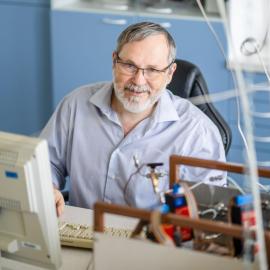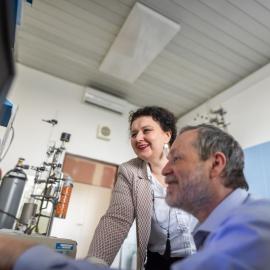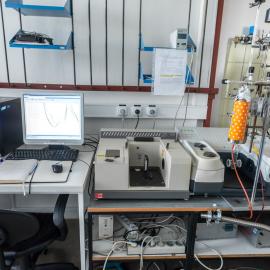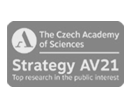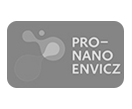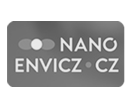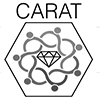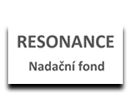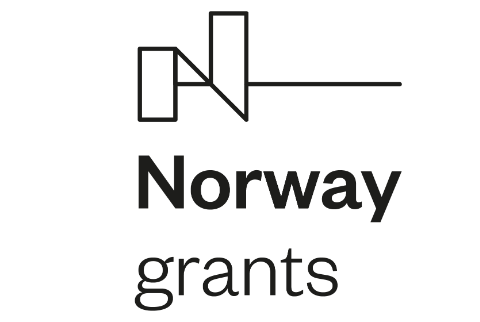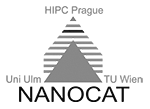Simpler and cheaper methanol production is closer to becoming a reality
Prague, 19th March 2024
The catalyst, which converts methane to methanol, will be developed by a new spin-off company of the J. Heyrovsky Institute of Physical Chemistry of the CAS. Its director, Martin Hof, has signed an agreement with the European joint-stock company METTOC, SE, to take an equity stake in the company. Mastering the new conversion process would mean significant economic benefits as well as profitable use of waste raw materials.
Methanol is an important raw material for the chemical industry, a so-called platform chemical, and its need is expected to grow significantly. Scientists also envisage it as a substance for easy storage and transport of green energy: converting methane gas or even hydrogen into liquid methanol would eliminate the negatives associated with storing and transporting these gases as energy sources.
Methanol is currently produced industrially from synthesis gas, a mixture of hydrogen and carbon monoxide, by the catalytic hydrogenation of carbon monoxide. Synthesis gas is produced by reacting water with methane. Both processes require high temperatures and pressures. Therefore, the process is difficult, energy intensive and can only be used on a large scale, not, for example, for the treatment of dispersed methane sources such as fracking gases released during oil or biogas extraction. The production of fracking gases, which are burned as waste without recovery, is equivalent to a third of the world's natural gas production.
Jiří Dědeček's team from the J. Heyrovský Institute of Physical Chemistry of the CAS has developed a catalyst that allows oxygen to be activated at low temperatures, for which the scientist together with Edyta Tabor and Štěpán Sklenák won the Award Česká hlava in 2020. The activated oxygen then allows the direct oxidation of methane to methanol. This removes the disadvantages of the current production process, is simpler and could be used to process dispersed methane sources and to produce methanol more cheaply. And it may point in the direction of easy "liquefaction" of methane or hydrogen.
From laboratory to chemical operation
The journey of discovery from basic research to practice is a long one, and most stages are no longer covered by research grants. Therefore, the J. Heyrovsky Institute of Physical Chemistry of the CAS was looking for an investor to put the invention into practice. Pavel Muchna from METTOC, SE, quickly understood the process that Jiří Dědeček's team was engaged in and offered the Institute cooperation, including funding. The goal is to bring the catalyst to market if laboratory tests prove the commercial potential of the innovative catalyst. This collaboration is very beneficial for the J. Heyrovsky Institute of Physical Chemistry of the CAS, as it brings not only the science but also the commercial aspect and links to the chemical and petrochemical industry.
In the jointly established European company METTOC, SE, in which the J. Heyrovsky Institute of Physical Chemistry of the CAS holds a 30% stake, the catalyst will be finely tuned and prepared for deployment in industrial conditions and applications, or for further development and improvement of the platform on which the catalysts operate.
"We are working to produce a system, a platform, instead of a model catalyst that is sufficiently active and robust. We are very close to achieving catalyst activity that guarantees commercial operation. In the first phase, we will focus on the area of fracking gases in oil and gas extraction and the conversion of biogas to liquid - biomethanol. The ultimate goal is to offer the market a catalyst that will partially replace conventional methanol production," says Jiří Dědeček from the J. Heyrovský Institute of Physical Chemistry of the CAS, who leads the technological development at METTOC, SE.
Spin-off accelerates invention to practice
The establishment of spin-off companies is one of the ways for the Heyrovsky Institute of the CAS to put discoveries and inventions into practice and at the same time obtain funding for further research. METTOC, SE, is the second spin-off company of the Institute. The first is SciCare - Innovations. s.r.o., which focuses on the use of photocatalytic coatings in the restoration and protection of cultural monuments. The agreement with METTOC, SE, was signed by Martin Hof, Director of the J. Heyrovsky Institute of Physical Chemistry of the CAS, on Wednesday 6 March 2024.
Video accompanying the press release - interview with Jiří Dědeček (in Czech)



